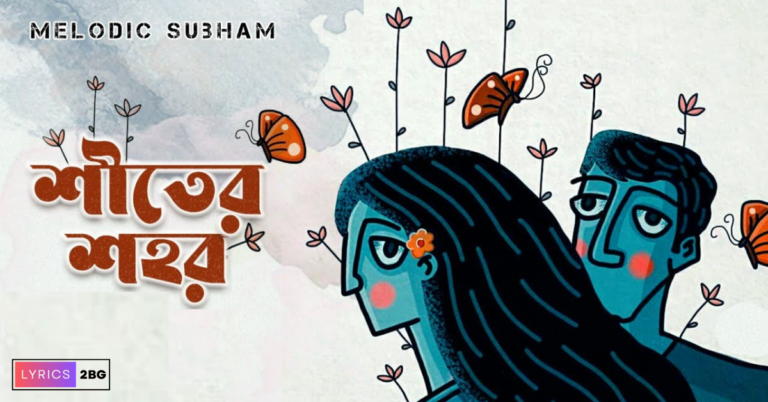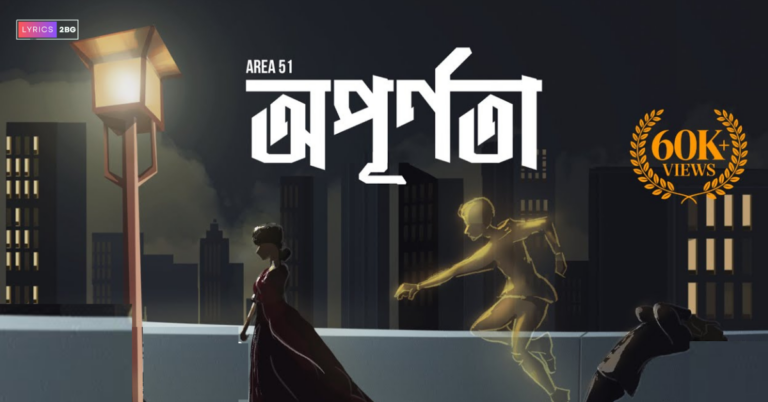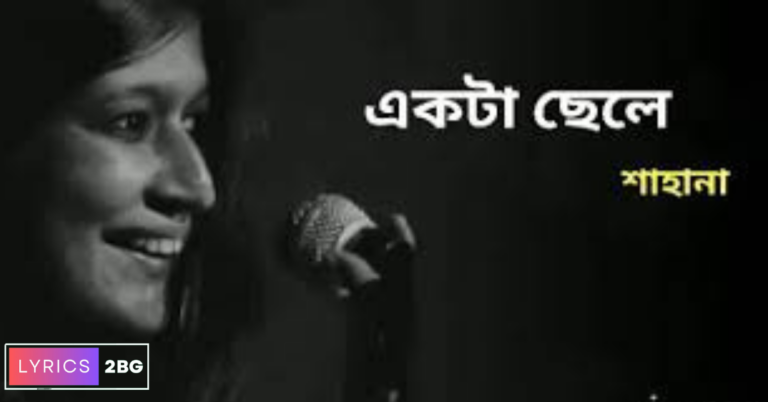Sokal Hobe Ki Na Lyrics | সকাল হবে কি | Nachiketa | A.M.Manik | Rizwan Nafi
Sokal Hobe Ki Na Lyrics
ভোরের হাওয়ায় আভাস থাকে
সকাল হবে কিনা
ভোরের হাওয়ায় আভাস থাকে
সকাল হবে কিনা
গহীন রাত্রি শেষে আলো আসবেই
এ কথা তো অনেক আগে জানা
তবু হতাশায় ভরে গেলে মন
খুঁজে ফিরি অনুপ্রাণন ।।
ডাহুক জেগে থাকে ভোরেরই আশায়
সুদিনের আশা বুকে সাহস জাগায়
জাগো জাগো
বধির মননে ঢেলে দাও আলো
কাঁটা তার জানেনা পথের সীমানা ।।
আমার মনেতে আছে আলোরই রেখা
গভীর গহীনে রাখা ফিনিক্স পাখা
জাগো জাগো
বন্ধ বিবেকে রবি রঙ মাখো
চাতক করে না কভূ বৃষ্টি গণনা ।।
পুড়ছে আপন ভূমি পুড়ছে স্বপন
বুকে জমা ঘৃণা হবেই বিস্ফোরণ
জাগো জাগো
জীবনে জীবন গেঁথে তীরন্দাজ হও
পাথরের মত যারা তারাই হয়েনা ।।
Meaning of Sokal Hobe Ki Na Lyrics
Sokal Hobe Ki Na lyrics verses, reflects on the enduring hope and resilience in the face of challenges. The lyrics paint a vivid picture of the early morning atmosphere, where the anticipation of dawn lingers in the morning breeze. Despite the knowledge ingrained in the poet’s mind about the inevitable arrival of light after the profound darkness of the night, a sense of disappointment and despair fills the heart when hopes are unfulfilled.
Sokal Hobe Ki Na lyrics mention of Dahu, the city, signifies the collective yearning for a brighter tomorrow. The poet encourages waking up with hope, instilling courage in the heart to face the uncertainties of the day. The repeated call to “awaken” suggests a plea to overcome despair and embrace the possibilities that a new day holds. The metaphorical significance of searching for inspiration in the depths of disappointment is beautifully expressed, emphasizing the transformative power of inner strength.
Moving forward, the verses delve into the metaphorical imagery of light as a guiding path and a symbol of endurance. The juxtaposition of the boundless night and the eventual emergence of light reinforces the cyclical nature of challenges and triumphs. The reference to Dahu’s ignorance of the limits of the path speaks to the unpredictable nature of life’s journey, urging resilience and adaptability.

The poet’s contemplation on the symbolism of light continues, portraying it as a thread in the fabric of the mind. The imagery of a phoenix, a mythical bird associated with resurrection, signifies the potential for renewal and rebirth even in the deepest recesses of the soul. The call to color the mind with the hues of the rising sun encourages a positive mindset, urging one to dispel darkness and negativity.
As Sokal Hobe Ki Na lyrics progress, the poet draws attention to the transformative power of self-awareness. The call to awaken the dormant conscience and paint it with the colors of the sun speaks to the need for introspection and moral clarity. The analogy of a rain gauge measuring the depth of disdain for the earth and dreams sinking into it conveys the heavy burden of negativity that needs to be cast away for growth and progress.

In the conclusion Sokal Hobe Ki Na lyrics lines, the poet urges a proactive approach to life. The metaphor of life as an archer weaving arrows emphasizes the need for active participation and skillful navigation through life’s challenges. The closing reminder that not everyone becomes a stone underlines the uniqueness of individual journeys, suggesting that resilience and strength are not universal, making them all the more precious.
In essence, this song weaves together vivid imagery and metaphors to convey a powerful message of hope, resilience, and the transformative potential within each individual. It encourages embracing the challenges of life with a positive mindset, seeking inspiration even in the darkest moments, and recognizing the profound strength that lies within.
Song : Sokal Hobe Ki Na lyrics
Singer : Nachiketa Chakraborty, Amirul Momenin Manik Sifat, and Rizwan Nafi
Lyrics : Amirul Momenin Manik
Speech and Tone : Amirul Momenin Manik
Music : Anuk Mostafiz
Editing : Mahruf
Promotion : Rajin Salehi
Management : Divine Studio
Filming : Zakir Hossain
Illumination : Kabir
Special Thanks : Asif Altaf Shoaib Ahmed
Special Support : Mujahid Zaman Video
Instructions : Amirul Momenin Manik







